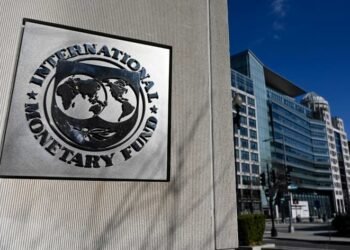Fitch Ratings, a top-tier international Rating Agency has assigned Guaranty Trust Bank Limited (GTB Ghana) a long-term Issuer Default Rating (IDR) of ‘B’ with stable outlook.
The impetus for the rating outlook of GTB Ghana is driven by its stand-alone credit worthiness, expressed by its Viability Rating (VR) of ‘b’. Mindful of the competitive and challenging nature of the Ghanaian operating environment, GT Bank operates with small market shares, high credit concentrations and ambitious growth strategy.
According to Fitch Ratings, the above listed considerations when paralleled with the bank’s healthy asset quality and strong profitability, capitalization and liquidity indicate a balance.
Specifically, GTB Ghana has small market shares of assets and customer deposits; both 3 percent at year-end 2020. Besides that, its franchise benefits from being a subsidiary of Guaranty Trust Bank PLC, fifth-largest banking group in Nigeria.
Fitch Ratings asserts that GTB’s market shares are expected to increase in a moderate fashion over the next three years. This outlook is anchored on the condition that the bank grows faster than the sector average with the objective of becoming a systematically important bank. Nevertheless, this target is challenging, Fitch suggests. This is due to the bank’s current market position and Ghana’s highly competitive banking sector.
Furthermore, Fitch notes that the Bank’s single-borrower credit concentration is high, with the bank’s 20-largest loans representing 83 percent of gross loans at end-2020. However, these 20 largest exposures represented just 87% of total equity, reflecting GTB Ghana’s large capital base and a low share of loans in total assets.
Fitch’s risk appetite assessment of the Bank also considers strong loan growth in recent years, driven by corporate lending that is expected to continue. Thus, leading to pressure on asset quality in the event of a relaxation of underwriting standards.
Profitability criteria for GT Bank Rating
Moreover, Guaranty Trust Bank’s profitability is strong, as shown by an operating return on risk-weighted assets (RWAs) of 17% in 2020. Profitability is underpinned by the high interest-rate environment and strong non-interest income, primarily in the form of retail fees and trading income. Thus, representing 49% of total operating income in 2020.
Reliance on sovereign-derived interest income is particularly high representing 64% of total interest income in 2020 due to large holdings of government securities. Loan impairment charges reached just 0.4% of average gross loans in 2020, reflecting the limited impact of the pandemic on asset quality.
GTB Ghana’s common equity Tier 1 (CET1) capital ratio- 35% at end-Q1 2021 is particularly high, reflecting a balance sheet that exhibits low leverage. But this is considered in view of the bank’s fairly low risk weight density which was 53% at year-end 2020.
Also, pre-impairment operating profit, which reached 55% of average gross loans in 2020, provides a large buffer to absorb asset-quality pressures without deterioration of capital. Fitch expects GTB Ghana’s CET1 capital ratio to remain high despite strong loan growth envisaged by management and supported by strong profitability and intention to maintain high capital buffers.
Furthermore, Guaranty Trust Bank’s reliance on non-deposit funding is low, with customer deposits representing 92% of total funding at end Q1 2021. A high percentage of demand and savings accounts (87% at end-2020) and a healthy share of retail deposits (51% at end-2020) support funding stability and result in a low cost of funding relative to peers’.
More so, depositor concentration is moderate by regional standards, with the 20-largest deposits representing 24% of total customer deposits at end-2020. GTB Ghana’s low gross loans or customer deposits ratio (40% at end-2020) is reflective of a highly liquid balance sheet.
Support Rating criteria of GT Bank and possibilities of Upgrade/Downgrade
These notwithstanding, while it is possible that GT Bank Ghana will receive support from GTB PLC, that trajectory cannot be relied on. Fitch posits that this situation is influenced by the cross-border nature of the parent-subsidiary relationship.
Also, Fitch perceives a risk of regulatory restrictions in Nigeria, particularly concerning foreign-currency flows out of the country. Obviously, that could constrain GTB PLC’s ability to provide timely and sufficient support to foreign subsidiaries.
On the downside, Guaranty Trust Bank could be assigned a negative rating action if there is a stronger-than-expected loan or balance sheet growth or material deterioration in asset quality.
Potentially, this may exert pressure on capitalization and may result in a Viability Rating (VR) downgrade if not compensated by new equity injections.
This may be indicated by a sustained decline in the bank’s tangible common equity/tangible assets ratio to around 12 percent.
Moreover, a sovereign downgrade would result in a downgrade of the Long-Term IDR and VR. This would happen if the bank does not meet Fitch’s criteria to be rated above the sovereign. However, this does not reflect Fitch’s base case given the Stable Outlook on Ghana’s Long-Term IDR of ‘B’.
On the upside, however, an upgrade in credit rating will require a sovereign upgrade and a general improvement in the operating environment, Fitch asserts.
READ ALSO: Covid-19 pandemic: Meagre Gov’t aid fueling Child Labor- Report























